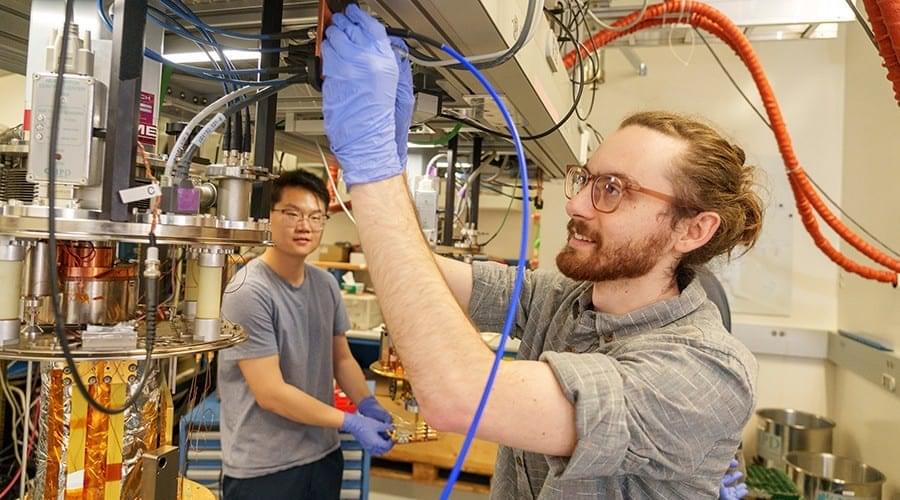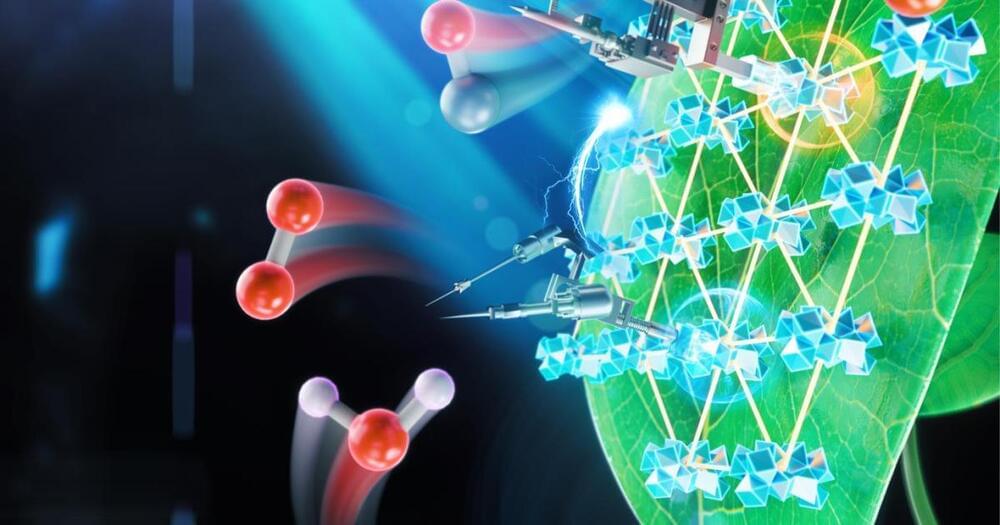Could #Life as We Don´t Know it use #Magnetic #Energy to Make a Living? For more info, see blog on.
#astrobiology #space #ScienceTwitter #alien
And if so, how would this hypothetical life form function?


“A phonon represents the collective motion of an astronomical number of atoms,” Cleland says. “And they all have to work together in order to obey quantum mechanics. There was this question in the back of my mind, will this really work? We tried it, and it’s kind of amazing, but it really does work.”
Splitting a phonon
The team created single phonons as propagating wavepackets on the surface of a lithium niobate chip. The phonons were created and detected using two superconducting qubits, which were located on a separate chip, and coupled to the lithium niobate chip through the air. The two superconducting qubits were located either of the chip, with a two-millimetre-long channel between them hosting the travelling phonons.

July 11 (Reuters) — Alphabet’s Google (GOOGL.O) was accused in a proposed class action lawsuit on Tuesday of misusing vast amounts of personal information and copyrighted material to train its artificial intelligence systems.
The complaint, filed in San Francisco federal court by eight individuals seeking to represent millions of internet users and copyright holders, said Google’s unauthorized scraping of data from websites violated their privacy and property rights.
“Google does not own the internet, it does not own our creative works, it does not own our expressions of our personhood, pictures of our families and children, or anything else simply because we share it online,” the plaintiffs’ attorney Ryan Clarkson said in a statement.

To celebrate the completion of the James Webb Space Telescope’s first year of science operations, NASA has released a close-up image of the birth of sun-like stars.
The image, captured on Webb’s telescope is a small star-forming region in the Rho Ophiuchi cloud complex – the nearest star-forming region to Earth.
The region’s proximity at 390 light-years allows for a highly detailed close-up, with no foreground stars in the intervening space.


A group of 51 superconducting qubits have been entangled inside a quantum computer, not just in pairs but in a complex system that entangles each qubit to every other one.

Back in 1956, Denham Harman proposed that the aging is caused by the build up of oxidative damage to cells, and that this damage is caused by free radicals which have been produced during aerobic respiration [1]. Free radicals are u nstable atoms that have an unpaired electron, meaning a free radical is constantly on the look-out for an atom that has an electron it can pinch to fill the space. This makes them highly reactive, and when they steal atoms from your body’s cells, it is very damaging.
Longevity. Technology: As well as being generated in normal cell metabolism, free radicals can be acquired from external sources (pollution, cigarette smoke, radiation, medication, &c) and while the free radical theory of aging has been the subject of much debate [2], the understanding of the danger free radicals pose led to an increase in the public’s interest in superfoods, vitamins and minerals that were antioxidants – substances that have a spare electron which they are happy to give away to passing free radicals, thus removing them from the danger equation.
But before you reach for the blueberries, it is important to know that, as so often in biology, the story is not black and white. Like a misunderstood cartoon villain, free radicals have a beneficial side, too – albeit in moderation. Free radicals generated by the cell’s mitochondria are beneficial in wound-healing, and others elsewhere act as important signal substances. Used as weapons by the body’s defense system, free radicals destroy invading pathogenic microbes to prevent disease.

The quantum nature of interactions between elementary particles allows drawing non-trivial conclusions even from processes as simple as elastic scattering. The ATLAS experiment at the LHC accelerator reports the measurement of fundamental properties of strong interactions between protons at ultra-high energies.
The physics of billiard ball collisions is taught from early school years. In a good approximation, these collisions are elastic, where both momentum and energy are conserved. The scattering angle depends on how central the collision was (this is often quantified by the impact parameter value—the distance between the centers of the balls in a plane perpendicular to the motion). In the case of a small impact parameter, which corresponds to a highly central collision, the scattering angles are large. As the impact parameter increases, the scattering angle decreases.
In particle physics, we also deal with elastic collisions, when two particles collide, maintaining their identities, and scatter a certain angle to their original direction of motion. Here, we also have a relationship between the collision parameter and the scattering angle. By measuring the scattering angles, we gain information about the spatial structure of the colliding particles and the properties of their interactions.

